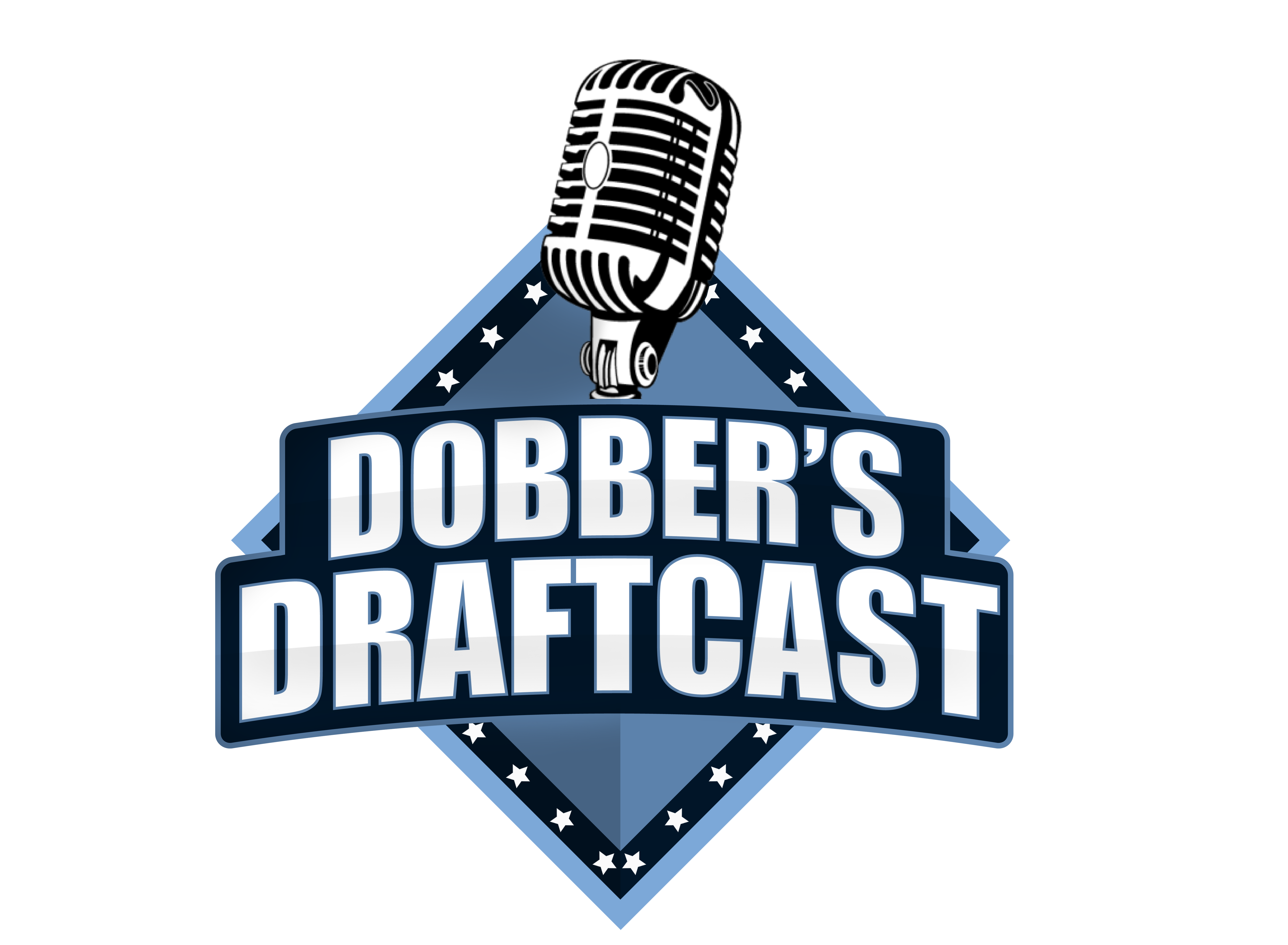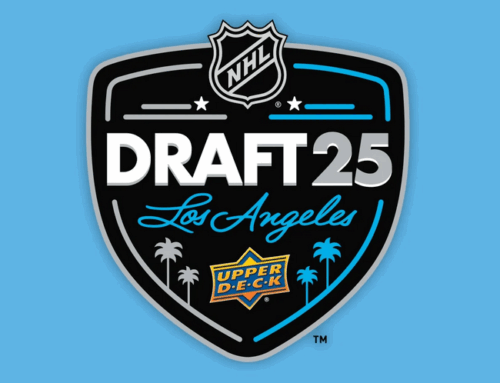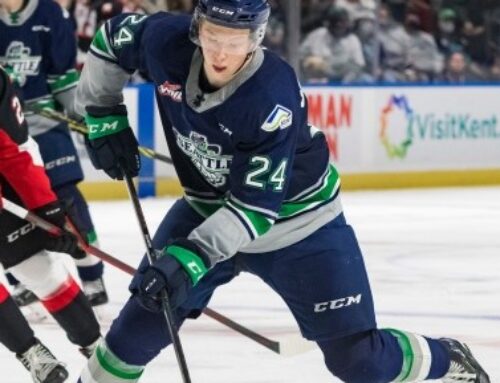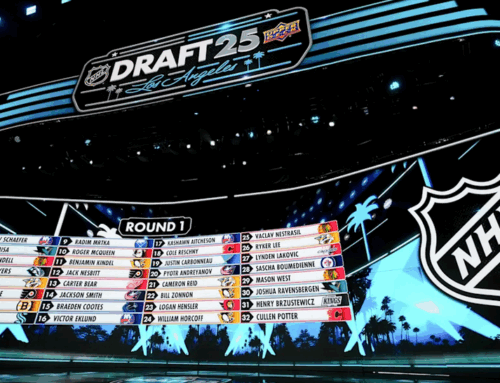Prospect Ramblings – Monday, June 16th
Austin Wallace
2014-06-16
Monday, June 16th
Come check out our mock draft here. The first surprise pick is Leon Draisaitl at number three, by Steve Laidlaw of DobberHockey.
Well, hockey is done. It was an amazing playoffs, but now the NHL has caught up to the fantasy offseason. Don’t worry though, we have some awesome stuff up our sleeves. Firstly, we are doing a Mock Draft! *ignores collective groan*
Seriously though, it is going to be awesome. Every scout here is drafting for their team and analyzing what the pick would mean from a fantasy perspective. It is a golden opportunity to get a preliminary fantasy evaluation for those of us, me included, who haven’t been religiously following the 2014 draft class.
We will even have a couple of guests! Steve Laidlaw has eagerly accepted the hellacious task, I mean wonderful privilege, of pulling the Oilers out of a decade-long tailspin. Stay tuned for more details in the coming days!
***
While I’m not quite heavily into advanced statistics as some *cough* Thomas Drance *cough*, I definitely think that they add value. I’m especially interested in who is at the extremes of things like PDO and possession. Even though PDO has its vehement detractors (http://www.secondcityhockey.com/2014/6/7/5787020/a-thorough-indictment-of-pdo), it does give a decent indicator of who has been massively un/lucky. PDO doesn’t usually mean much with small sample-sizes, or when you are taking about regular fluctuations, but looking at who was on the fringes can tell you about who will rebound/crash next year.
There aren’t a lot of ways I can add value to such a knowledgeable community, especially with no games to watch, so please bear with me through some not-so-fancy stats. If you aren’t interested in this, or think what I’m saying doesn’t add value, please let me know in the comments; I’ll do my best to make to make the discussion accessible to anyone and actually give you actionable information.
It does take more than numbers to analyze this, you definitely have to watch the game to make sense of PDO in this way.
You have to separate those who are consistently playing with terrible teammates (which depresses the shooting side of PDO), from those who are decent and having a terrible season. That is easy enough with someone like Alex Ovechkin (4th worst with a PDO that is 5.1% worse than his team’s, aka PDO rel) from someone like Zac Rinaldo (worst in PDO rel at -5.6%).
Assuming a constant SV%, then having a player like Rinaldo means that his team goes from shooting 10% like Nathan MacKinnon to shooting 5% like Drayson Bowman with him on the ice. Over a year, assuming 400 shots, that means that 20 fewer goals than expected were scored when you were on the ice. He either had to be terrible, or terribly unlucky (or both), to have things go so much worse whenever you are on the ice. In the case of Rinaldo, my guess was a bit of both. He has had significantly negative PDO rels each season, but this was his worst by far. Ovechkin, on the other hand, had a positive PDO rel the two past seasons, so this year is probably just a blip on the radar.
Rookies/sophomores are where it actually gets interesting, and difficult. Does Seth Jones’s 10th-worst -4.7 PDO rel mean he was overwhelmed as a rookie, or did he actually play better than his plus-minus might show? How about Yakupov? His PDO rel is the same as Jones’s; is he the first true first-overall bust since Stefan and DiPietro? Or is he due to regress in a big way, rebounding from a sophomore slump?
J.T. Brown, Alex Galchenyuk and Alex Chiasson are right on their tails, with unsustainably low PDO rel’s of -4.5, -4.3 and -4.3 respectively.
One way to get a better idea is to look at how young players with similar PDO rel’s bounced back in the past.
Here are some young players who’s PDO rel’s were at least as bad as Chiasson’s -4.3 in 2011-12 and 2012-13:
David Desharnais:
PDO rel: From -5.7 to +3.0
Points per Game: .58 to .66
Justin Shultz:
PDO rel: -4.9 to +0.7
Points per Game: .56 to .45.
While his points per game dropped, his primary points per game (which exclude secondary assists as they are less repeatable than primary assists) increased from .25 to .31.
Jeff Skinner:
PDO rel: -5.6 to +.08
Points per Game: .57 to .76
Alexei Emelin:
PDO rel: -5.8 to -2.6
Points per Game: .1 to .32
Cam Fowler:
PDO rel: -4.7 to +1.1
Points per Game: .37 to .30
Matt Calvert:
PDO rel: -9.1 (!!!) to .1.1
Points per Game: .38 to .43
On average, each player’s PDO relative to their team went up by 6.3! Emelin’s went up by the smallest amount. And it was still an increase of 3.2%. The easiest way to grasp what those numbers mean is to assume that the team and goalie stays the same, and that the only thing changing is the save percentage. That isn’t realistic, but it gives a good picture of the impact of PDO. So on average, you can think of it as players with terrible PDO rels effectively had their on-ice shooting percentage go up by 6.3%!
A lot of the regression was “absorbed” by save-percentage increase, and thus an increase in plus-minus, but four of six players had their points per game increase. On average, those six players had an increase of .15 points per game, which is an increase of 12 points over an 82 game season.
This is a very small sample size, but we can expect that, on average, Yakupov, Jones, Galchenyuk, Brown and Chiasson should rebound next year.
***
People are generally more patient with defensemen, but I think Yakupov is an immense buy-low opportunity right now. While the possibility of a bust does exist, so does a boom. There are few opportunities to get a recent first overall pick at this value, and his value versus upside is tremendous. While one has to be wary of bust potential, he is a player that can win you a league. His low plus-minus comes partially from the fact that while he was on the ice, Edmonton’s goalie had a 88.2 SV%, worst in the league. Again, that doesn’t say good things about his defence, but it says more about his rotten luck.
***
Seth Jones is going to be a very, very good defensemen. He had 25 points this year as a rookie, and that will only increase. Like Yakupov, his low plus-minus is partially due to his goalies 88.9% while he on the ice. That won’t continue, and neither will his minus-23. What he will provide is across the board stats: hits, block, shots, and decent PIMs. His team-leading 11 points in 8 games at the World Championships were indicative of a dominant performance, and a sign of the good things to come.
***
Galchenyuk seems to be forgotten a bit, outside of Québec, though something tells me it won’t be easy to convince whoever owns him to give up the Habs next star. The sophomore had a season that was disappointing, but not unordinary, when you look at traditional statistics. He scored four more goals and four more points this year, but in 17 more games. His shooting-percentage was about the same, his shots were down only a tick, his ice-time was a couple minutes higher.
The thing is, he had a strangely terrible season. When he was on the ice, the puck went in the wrong net a remarkable amount of the time. While he wasn’t a world-beater by any means, he didn’t hurt the team much in terms of possession. The Canadiens directed more shots towards the net with him on the ice, relative to when he was off it. This is where it gets weird. Last year the percentage of goals Montreal scored while he was on the ice was 12.9% higher than when he was off it. The closest players to that this year are Landeskog, Ryan and Semin, and the players that far up the list are generally stars.
This year, he plummeted to -15.9%, 16th worst in the league. The next five that were slightly better by that measure: Casey Cizikas, Andrew Desjardins, Clayton Stoner, Trevor Lewis and Cody Eakin. That is damning company.
If you can guess who is directly worse than him on that list without scrolling to the bottom* or having prior knowledge, I will audit your team. Seriously.
A swing of nearly 30% is similar to someone playing half a season where the goals go in for your team 69% of the team (Anze Kopitar) then suddenly switching to Ryan Smythe and having only 39% of the goals go in while you are on the ice.
Last year was buoyed by a 105 PDO, and this year was dragged down by a 97.5 PDO, but overall I think he is closer to the first group of stars than the second group of scrubs.
***
Right under that Eakin from that previous group is JT Brown. He started to come into his own as a tough, quick 5’10 player. After scoring at a near point-per-game rate in the AHL, he was called up for good to the Bolts. While management loved him, and he had his fair share of scoring chances, he simply didn’t have the puck go in at all. He was above average in possession, he shot at a good clip, but again he was buried by a 97 PDO. While he may never be a world-beater, if you can get him at the price of an undrafted 23 year old rooked who scored 19 points in 63 games, he is likely to vastly overperform that demographic.
***
Alex Chiasson is the youngster to be absolutely killed by the bounces. His start is legendary, 16 points in his first 16 NHL games, but he “hit a wall”. He finished with 35 points, but could have had oh so many more, especially since he was on the top powerplay unit. His low PDO was almost entirely due to goaltending, which basically means his plus-minus is likely to rocket back up from -21. While he will probably have some positive regression, his shots/posession/on-ice shooting-percentage/etc. are all pretty lame in terms of signs of a bounce back waiting to happen. Of a little note, Chiasson’s six-game playoff PDO of 79.3 was inconceivably bad. I mean, its 6% worse than anyone else who played at least six games in the past three playoff years. Exactly zero goals of the 28 shots he was on the ice for went in, and Lehtonen had a SV% of 79.3 in front of him. The only goalie I can find to ever be worse over a full season is Scott Gordon, former Islanders coach, who had a .787 SV% in 1990. That doesn’t say a thing about Chiasson, it is just ridiculously unlucky.
***
One Quick look back on the cup finals.
The Kings winning was the redemption of the fancy-stats community (who placed a lot of value sample-size of one team), and traditionalists alike. Their clutch goaltending and timely scoring won them the Cup. They represented the best conference, a conference whose teams played at a 100 point pace while facing the east. Their scoring depth was incredible, up front and from the blue-line. They dominated in the Corsiss and Fenwicks. To think, they were so close to being done in the first round. It makes you wonder how many teams eliminated in the first round each year would actually have a chance to do what the Kings did.
The NHL playoff scoring leaderboard paints a pretty stark picture: King, King, King, King, Blackhawk, King, Blackhawk, McDonaugh. Lots of Kings and a lone Ranger, a defender at that!
Without looking, can anyone guess the order of the five Kings?
***
Pearson and Toffoli were both very good throughout the playoffs, and have certainly solidified a spot in the lineup for next season. I don’t think that the playoffs are much more predictive than any other 20 game stretch throughout the season, but a good playoff performance can give young players a bit of a longer leash when establishing themselves next season.
The counterexample to the above, Chris Kreider had a(nother) coming out party, and was dominant at times with 13 points in 15 games. However, a lot of that production came on the back of a 17.2 shooting percentage and spot on the top PP unit. He had five poweplay points in the playoffs, compared to only 11 in the regular season. At even-strength, Kreider’s points per 60 minutes of ice-time were only slightly elevated from the regular season (1.88 compared to 1.66). If Kreider continues to play on the top lines (every one of his playoff shifts were with at least one of St. Louis, Nash and Stepan, and a full 82% of them were with Nash and Stepan) and get prime powerplay time, you can expect a big step forward next year. Just be prepared for a smaller leap than these playoffs might suggest.
* The player worse than Galchenyuk, with a worse than -15 goals-for-while-on-ice-relative-to-not-on-the-ice-wow-these-stats-are-either-cryptic-or-an-unholy-mouthful, with a worse than -15% GF rel, 15th worst in the entire league, the Great 8, the 50 Goal Scorer, The Alexander Ovechkin. This isn’t the place for it, but he had a confounding season that runs much deeper than the race between his assists total and his negative plus-minus. (The score: -35 to 28 assists.)





